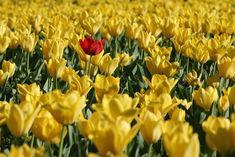
The Netherland’s iconic tulip fields may not bloom for much longer if EU proposals to restrict pesticide approvals are accepted, according to a report published by the Dutch Federation of Agriculture and Horticulture.
The UK has already made clear its concerns about the need for a full assessment of the impact of pesticide restrictions on crop production and the price of produce, and now other European countries, including the Netherlands, are following suit.
The report predicts that, if the hazard-based criteria put forward by the parliament to reduce pesticide availability are accepted, there would be yield reductions of 50 to 100 per cent for a range of Dutch crops including tulip bulbs (with 80 per cent yield losses), roses, cucumbers and Brussels sprouts. This means these products could no longer be grown profitably.
Even in the least severe scenario, based on the current common council position on the restrictions, the yield losses for tulips would be 45 per cent with producers’ margins reduced by 99 per cent.
Tulips and other bulbs would be particularly hard-hit because pesticides are used to prevent diseases that can prevent bulbs from flowering.
Dominic Dyer, chief executive of the UK Crop Protection Association, said: “With this economic assessment, the Dutch have illustrated further the breadth of impact that would be felt among key agricultural and horticultural industries across Europe if key aspects of the proposals are approved. It reiterates the need for a full impact assessment to be carried out by the European Commission.
“We need to make sure that industry stakeholders and MEPs all are fully aware of the true impact of the proposed restrictions so that the right decisions are made on the specifics of the regulation,” he added.



